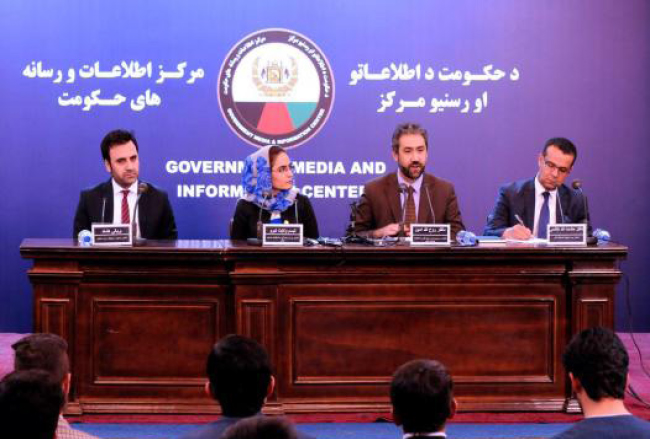KABUL - Of every three posts created under the Employment Strategy over the last six months, one has been filled. One of every five appointees is a woman, with youth grapping most of the positions amid growing complaints.
A report from the Independent Administrative Reform and Civil Services Commission (IARCSC) shows nearly half of the appointees have studied to the bachelor level. Of every six people employed, one is illiterate.
It says the number of male complainants is five times higher than females. Of every three individuals, two have been promoted to higher grades during the first six months of the current fiscal year after proper evaluation.
One-third of the development budget has been spent in the first six months of the ongoing year.
Dr. Roohullah Amin, IARCSC complaint commission head, presented the six-month report on IARCSC performance in Kabul.
In line with the report, the IARCSC should have recruited 8,558 people to vacant positions at 37 ministries and independent institutions. But the commission managed to hire 3,160 people in the first six months.
As many as 1,888 positions in 37 government institutions had been left vacant in 2017 due to terminations, retirements, resignations or deaths and there was an urgent need for filling these vacancies.
“There is a possibility of some employees at ministries and civil services being terminated against the law. Any kind of explanation in this regard would help remove doubts in public minds regarding the ministries and other institutions in removing people illegally."
Lack of coordination between IARCSC and different government institutions, failure to evolve a proper strategy, delay in approval of posts and lack of clarity about the number of CBR posts are the main reasons behind the inability to fully enforce the employment strategy, according to the report.
It added, the ministries of counternarcotic, women affairs, water and energy, rural rehabilitation and development, mining and petroleum, agriculture, civil aviation and authority, the Attorney General Office and the Central Statistics Organization (CSO) lag behind in implementing the plan.
The gender issue is yet to be addressed and a balance between males and females has not been struck in the employment strategy. A huge disparity exists in the number of women and men hired, especially at the provincial level.
ocational capacity, lack of security, particularly in provinces, cultural restraints and local traditions are viewed as key obstacles to women's employment.
Professionalism and upgrades to civil services are important findings of the report.
According to the report, during the period, 84 percent of those appointed were aged between 19 and 40 years and the remaining 16 percent between 41 and 65, showing the entry of young talent energizing different institutions.
The report highlights the importance of having experienced employees in the institutions but at the same time stresses the need for the induction of young talent.
The report hails the induction of young and professional individuals with higher education as a huge achievement. At the same time, the appointments strengthen civil services.
According to the statistics, many illiterate people have been hired to the posts which should have gone to educated candidates.
The induction of young talent with modern education and having familiarity with contemporary tools left a positive impact and played a basic role in bringing fundamental changes in line with drastic reforms.
Most of the educated individuals were hired at the centre.
“Security issues, inadequate rights and privileges for educated individuals in the provinces and comfort gaps between capital and provinces are the main reasons for the young talent quitting the provinces in search of job in the central capital,” the report says.
Home » Afghanistan » Employment Plan Not Fully Implemented: IARCSC Report
Employment Plan Not Fully Implemented: IARCSC Report

